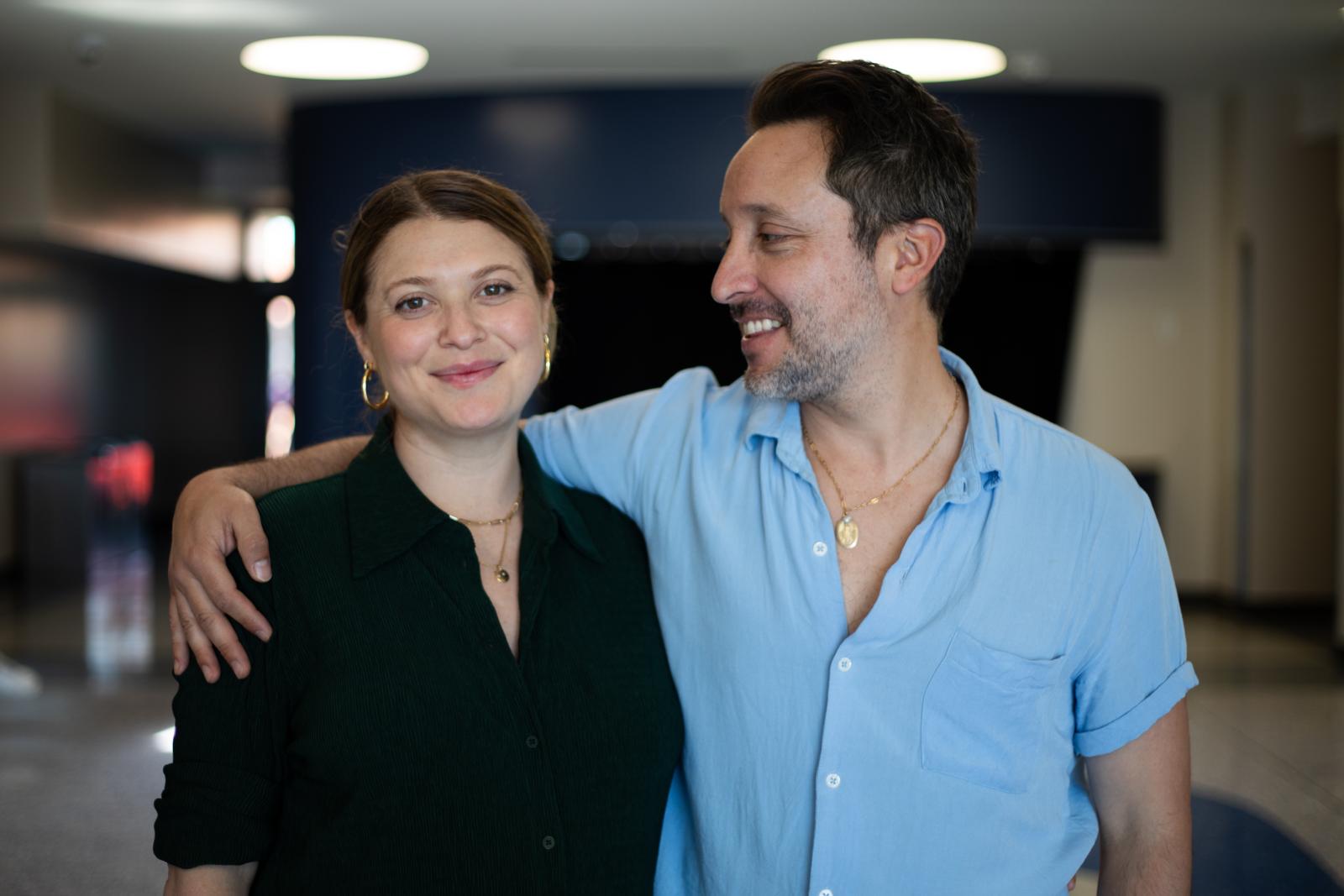‘Mean Girls’ musical filmmakers recount their journey to the big screen

Married filmmakers Arturo Perez Jr., who graduated from Moody College of Communication in 2006 with a radio-television-film degree, and Samantha Jayne knew they had to be scrappy to break into the film industry. The pair spent 10 years taking whatever jobs they could and developing their own work for no pay just to make a name for themselves.
After nearly 20 years in the industry, their hard work paid off in 2020 when former “Saturday Night Live” star Tina Fey caught wind of their talent and asked them to pitch an idea for a film adaptation of the “Mean Girls” Broadway musical, which itself is based on a 2004 film written by Fey.
“Mean Girls” cost $36 million to make, a meager budget by box office film standards, and went on to gross more than $100 million worldwide after its release in January.
Those years it took to get their filmmaking career off the ground were crucial preparation for helming a full-length feature film. Perez said he spent many days directing live music videos for independent artists for the YouTube channel “La Blogotheque,” working for free. This allowed him to practice so he could close what Perez calls “the gap” — a chasm that exists between having good taste and ability to follow through with the work.
“When you're making your first movie, you haven’t made any mistakes,” Perez said. “Then you have to go and make all of the mistakes so that next time you will learn from them.”
Perez and Jayne said they got their first taste of success with a series of shorts called “Quarter Life Poetry,” based on Jayne’s own quarter-life crisis while working at an advertising agency. It earned acclaim at the 2019 Sundance Film Festival and later was picked up by FX. The studio agreed to develop the shorts into a half-hour episode TV series, but the pandemic derailed the project.
After the network dropped their show, Perez and Jayne discussed ending their film careers, joking that they briefly considered a simpler agricultural life. But it was during this slump that Fey reached out. Jayne said the recent upset encouraged them to not hold back during their pitch.
“It was nice because the attitude that we had towards ‘Mean Girls’ was that we had already gotten so burned, so we just wanted to propose exactly how we would do it,” Jayne said. “We just didn’t have fear going into it, which I think was ultimately helpful.”
When the pair got the job, they began infusing their comedic style into the source material. They said they felt pressure trying to live up to the cult-classic film and the 12-time Tony-nominated Broadway musical, while simultaneously breathing new life into the project.
Perez and Jayne didn’t have all the resources of a blockbuster film, but they did not let that stop them. They took over a high school in New Jersey for a little more than a month to film and never wasted a second. Perez said they would shoot entire musical sequences with their phone during rehearsals, exactly how it was meant to look in the movie, so they had everything set when cameras started rolling.
“There was just no time, so the goal was to have everything totally figured out beforehand,” Jayne said. “On the day, it was purely about execution and leaving some breathing space for the actors to do their thing.”
Perez and Jayne have always prided themselves on their resourcefulness. From the beginning of their careers, they found ways to use what they had to make movies and encourage young filmmakers to do the same.
“No one’s going to hire you to be a director,” Perez said. “You just have to go out, make films and get better.”
The couple encouraged radio-television-film students to use what they have to make something short and simple, whether it's a scene from a longer project or a standalone short, to show their skills. They recommended shooting in a single location, asking friends to help out, posting the project to easy-to-access sites like Vimeo and sending it out to everyone possible.
“If you want to be a director, go for it,” Perez said. “You have to be able to call yourself a director first, believe it and then start making the most you can.”
Perez said making movies is not always a glamorous process, but it's the love of the craft that pushes you forward.
“If you like bringing people together to make movies, you already won,” Perez said. “It doesn’t matter if it's good or bad. That part will get better over time. It’s just about getting together to make something.”
